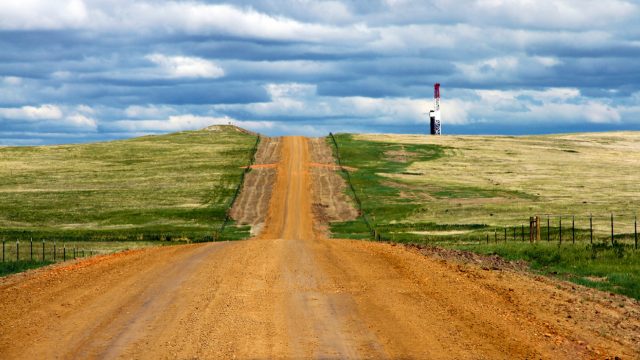North Dakota's "Hands Off" Approach To Pipeline Reclamation Is Working

The thing about economic liberty is that it sometimes gets messy, and there really is no one way to do it. It can take some experimenting.
North Dakota is somewhat unique among states with its hands-off approach to dealing with the problems that come with industrial growth. Rather than treating the oil industry as a corrupt criminal whose every transgression must be punished, state regulators try to protect citizens while allowing the industry to operate and grow.
The approach has worked. North Dakota breezed right through one of the worst recessions the country has ever witnessed, experiencing meteoric growth while other states struggled. There are real problems, and the state is taking some innovative approaches to address those issues that don’t undermine economic progress.
Pipeline reclamation is one of those issues, and legislators established a pilot program in the last session to try to help farmers and landowners by providing technical assistance and mediation so the farmers work out a resolution with the companies. It doesn’t add regulations. It facilitates solutions between parties.
As the industry grows, pipelines are crisscrossing farmland, and the farmers encounter slumping ground, uprooted trees, erosion, exposed pipe, and improper soil mixtures, among other problems. For a farmer, just identifying who owns the pipe and who in the company to talk to can be a challenge in and of itself. If the farmer gets that far, negotiating a resolution presents even greater difficulties.
[mks_pullquote align=”right” width=”300″ size=”24″ bg_color=”#000000″ txt_color=”#ffffff”]As the industry grows, pipelines are crisscrossing farmland, and the farmers encounter slumping ground, uprooted trees, erosion, exposed pipe, and improper soil mixtures, among other problems. For a farmer, just identifying who owns the pipe and who in the company to talk to can be a challenge in and of itself. [/mks_pullquote]
“More and more over the years, I was receiving calls about these issues,” said North Dakota Agricultural Commissioner Doug Goehring.
Frustrated farmers were going about trying to get a response from the pipeline owners, sometimes for years, with little knowledge of the industry. And the industry was putting more and more pipe in the ground, using engineers with little knowledge of farming.
“There were decisions being made by engineers in Denver and Houston,” Goehring explained.
With some 107 programs under his department, his staff was spread so thin that he really didn’t have the resources to dedicate any staff to address these problems. Legislators were also getting calls as farmers sought other avenues.
“Landowners were not getting the help they needed,” said Sen. David O’Connell (D-Lansford), who co-sponsored SB 2271, which created the program.
Farmers submit complaints to the Department of Agriculture, who then assigns an ombudsman to the case. The ombudsman does an on-site examination of the issues, contacts the company, and then works with both parties to find a satisfactory resolution.
The program is funded with $400,000 through the abandoned oil and gas well plugging site reclamation fund.
The program has a few limits as to the issues with which it can help. It doesn’t assist with pipelines installed prior to Jan. 2006 or the pipelines that fall within Public Service Commission jurisdiction under title 49. The program also doesn’t assist in easement negotiations.
Even with these restrictions, O’Connell said the program can have a substantial impact on the issues without having an impact on the state’s economic growth.
“It’s another tool in the toolbox,” the senator said.
The program is authorized until June 2017. Since the end of April, the program has received 17 notifications for farmers with pipeline reclamation issues, two of which were deemed to involve pipelines under PSC jurisdiction. And most resolutions won’t come until after the harvest.
So it’s too soon to tell how effective the program is. It may need some tweaking. But the program goes a long ways to address issues without a bundle of red tape and all the unintended consequences that go with it. It’s showing there are better ways to deal with problems that come with growth than limiting that growth with the heavy hand of government.
“It shows the state does care,” O’Connell said.




